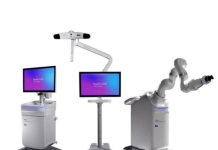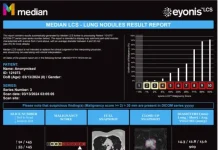CoreMap received FDA investigational device exemption (IDE) to extend its electrophysiology (EP) mapping trial to the U.S.
The study aims to evaluate the safety and effectiveness of the CoreMap endocardial EP mapping system in patients with AFib. It looks at both persistent AFib and long-standing persistent AFib. The company says that, to date, its mapping technology has demonstrated safety and acute effectiveness in more than 50 patients.
Related: Distalmotion wins FDA nod for gallbladder removal with surgical robot
CoreMap designed its micro-electrode technology and novel algorithms to address current limitations in AFib mapping. Those include low spatial resolution and inadequate signal density, according to a news release.
The next-generation system guides patient-specific AFib ablation using ultra-high resolution endocardial mapping. Its Envenio EP mapping catheter features a dense array of micro-scale electrodes to capture highly localized, high-fidelity electrograms with minimal fractionation. This enables the use of novel algorithms to identify AFib drivers and support precise, targeted ablation.
Dr. Vivek Reddy of Mount Sinai serves as principal investigator for the trial. Earlier this month, the company conducted compassionate use cases at a New York hospital. The cases guided pulsed field ablation in patients with recurrent AFib who had been unresponsive to multiple prior mapping and ablation procedures using commercially available technology.
“This IDE approval marks a major milestone for CoreMap as we expand our clinical research into the U.S.,” said Sarah Kalil, CEO and co-founder. “We are encouraged by our clinical data as we seek to transform treatment for AF patients globally and look forward to building on the strong safety and effectiveness data already demonstrated in Europe.”




